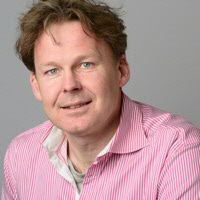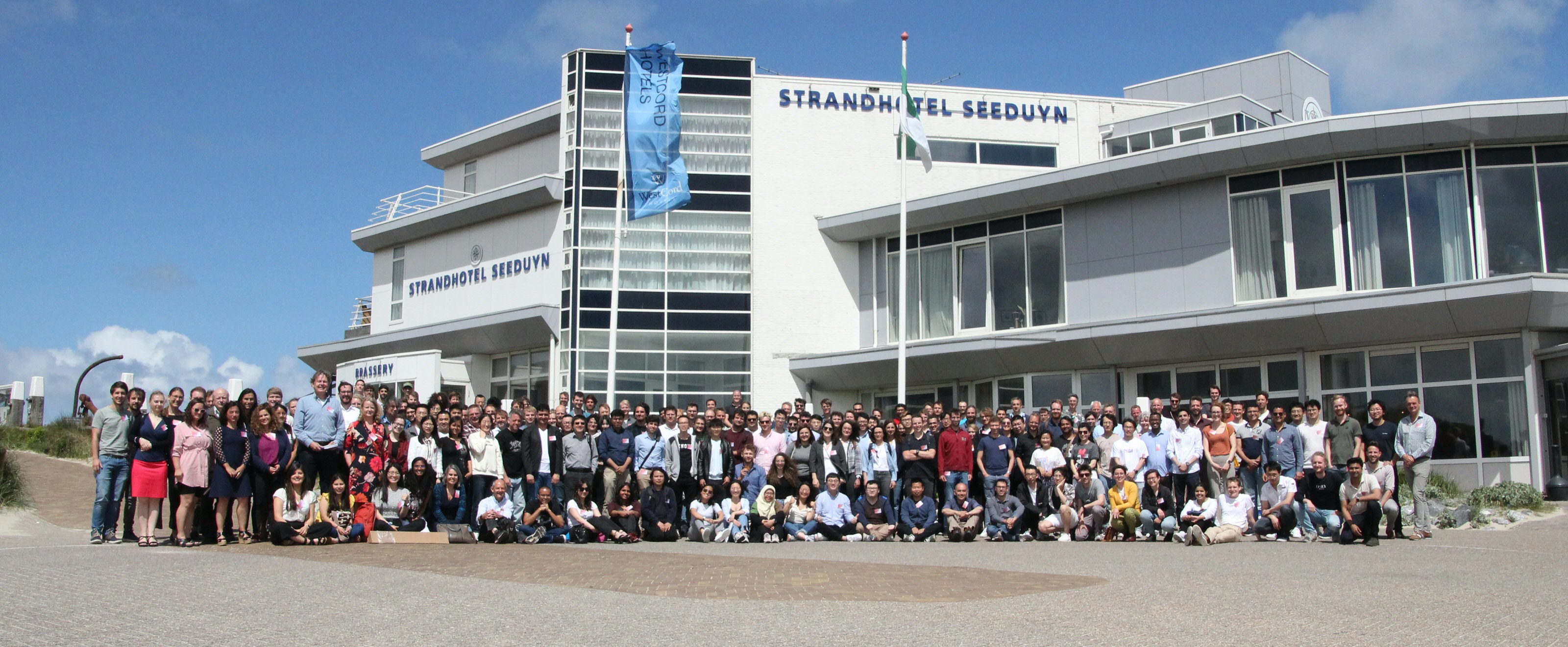Caspar van der Wal hands over directorship
After six years of being the director of the Zernike Institute for Advanced Materials, Caspar van der Wal will hand over his position to a new director, Moniek Tromp, on Januray, 1st. We talked to him about his experiences in the last few years, and what he plans to do when he steps down.
By Renée Moezelaar

How do you look back on the last six years?
“It was an amazing experience. I never saw myself in this kind of position and I was really surprised when the organisation asked me to take the role of director, but it turned out to be very inspiring. It gave me a lot of energy to see how the institute developed and thrived, and I am glad I could do my part.”
When you started out you named three main goals: prepare collective research efforts for large scale funding proposals, recruit new scientific staff and improve public relations, communication and outreach. Do you think you succeeded?
“I am happy with the progress we made on all three accounts. We really organized ourselves better, and created consortia within the institute that work together on certain themes. I especially like the fact that these themes were not determined by the most senior professors, but that it was a team effort where everyone could pitch their ideas. This kind of structuring gave us the opportunity to focus on certain promising themes for funding proposals and subsequently get involved in programmes like the HTRIC programme and the CogniGron Centre. I think this helps us to show what we do on a national and international scale, and it solidifies our reputation as a great research institute.
All these changes were also possible because we were able to attract a lot of new talent. During my time as a director we managed to streamline the hiring process, and in the end we hired 16 new professors. I am very happy and proud with the diverse group of fantastic new colleagues, who also embraced the way we work at our institute, and who promote the open atmosphere where everyone, student or professor, can work together on problems they face in their research.
In the field of public relations and communications we also made big steps. I think we improved in communicating both internally and externally. We now have a glossy for all Advanced Materials research at our Faculty, in which we do not only highlight big publications but also talk about other aspects of our work that can inspire people. And we send out more press releases than we used to, to show the world what kind of things we are involved in. Of course, there is always room for improvement, but I think we made a good first step.”
What was the highlight of the six years?
“My favourite events were the trips to Vlieland with the whole institute. During the corona crisis we discovered how important it is to stay in contact with each other, and also have some fun, so it was good to see that we could keep this tradition alive.
Another thing I really liked was how we initiated weekly “chat and chalk” lunches with all the professors in the institute. We use it to catch up on all developments, and each week one colleague gets the lead on presenting a new research idea, just with chalk on the board. It is fun to see how well this works, and it also worked out very well as a way to keep in touch during the corona crisis.”

Are there things that you would have done differently?
“Honestly not really. Of course, there are many things that asked my attention over the years, and there is simply not enough time to address them all. But I am glad about the progress of the themes I invested in, and I like to think I did make a difference there. Or at least put some new processes in progress that the institute can benefit from in the future.”
What are your plans for the future?
“I have not yet worked everything out exactly, but I certainly want to go back to research. Some people in my role choose to go on to other board-roles, but I don’t think that would fit me. Teaching and doing research give me my energy, so I am going to focus on that.
I am also thinking about some new twists I can bring to my research, to bring it closer to applications that would directly impact the huge challenges society faces, like climate change. I think a lot of what we do at the Zernike Institute can really make a difference in the world, because it becomes increasingly important to understand materials. To use them as efficiently as possible, and there is still a wealth of fully new material systems to be discovered. And I hope I will be able to contribute to that in the future with my research.”
| Last modified: | 14 October 2022 09.19 a.m. |
More news
-
16 December 2024
Jouke de Vries: ‘The University will have to be flexible’
2024 was a festive year for the University of Groningen. In this podcast, Jouke de Vries, the chair of the Executive Board, looks back.
-
10 June 2024
Swarming around a skyscraper
Every two weeks, UG Makers puts the spotlight on a researcher who has created something tangible, ranging from homemade measuring equipment for academic research to small or larger products that can change our daily lives. That is how UG...
